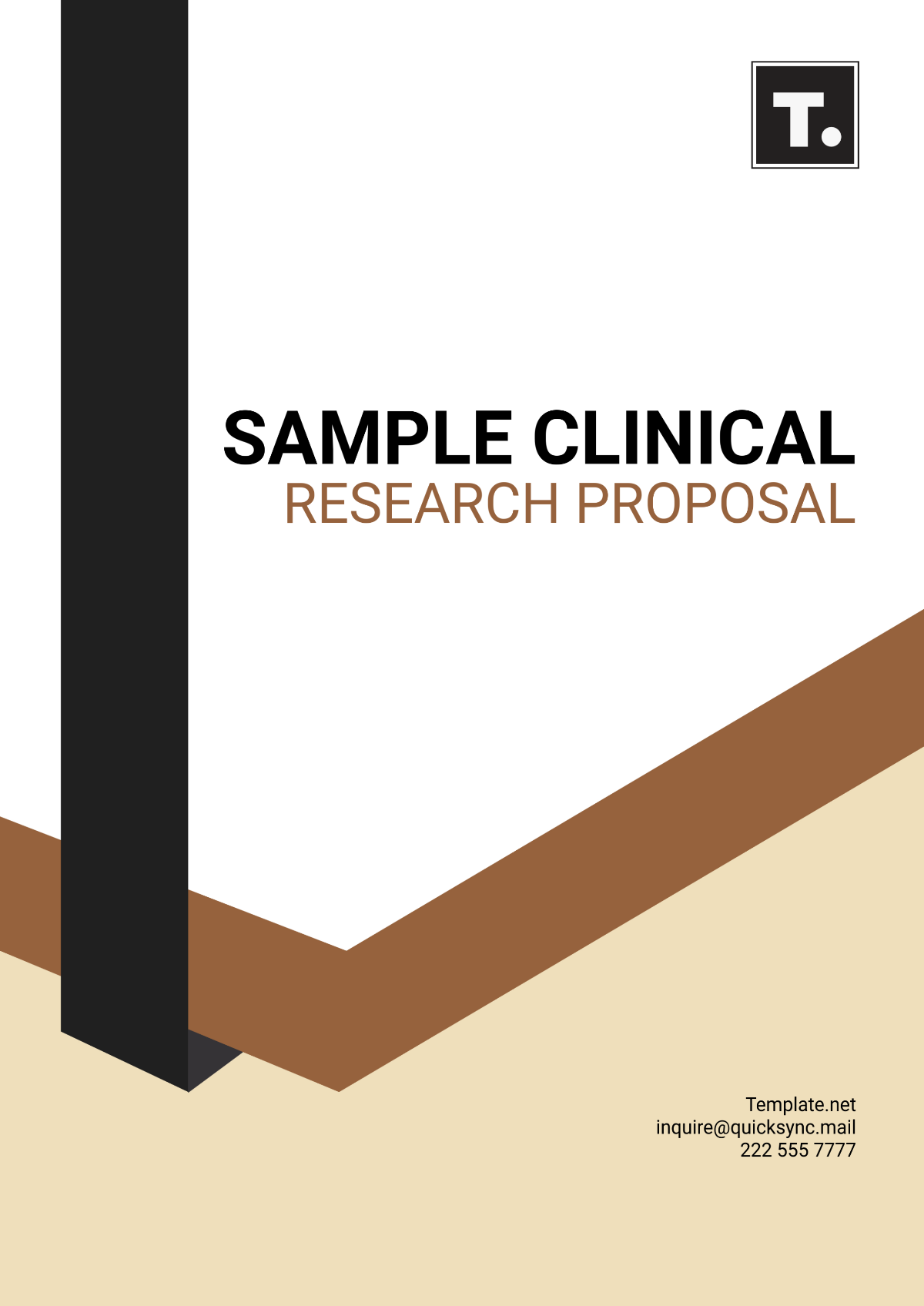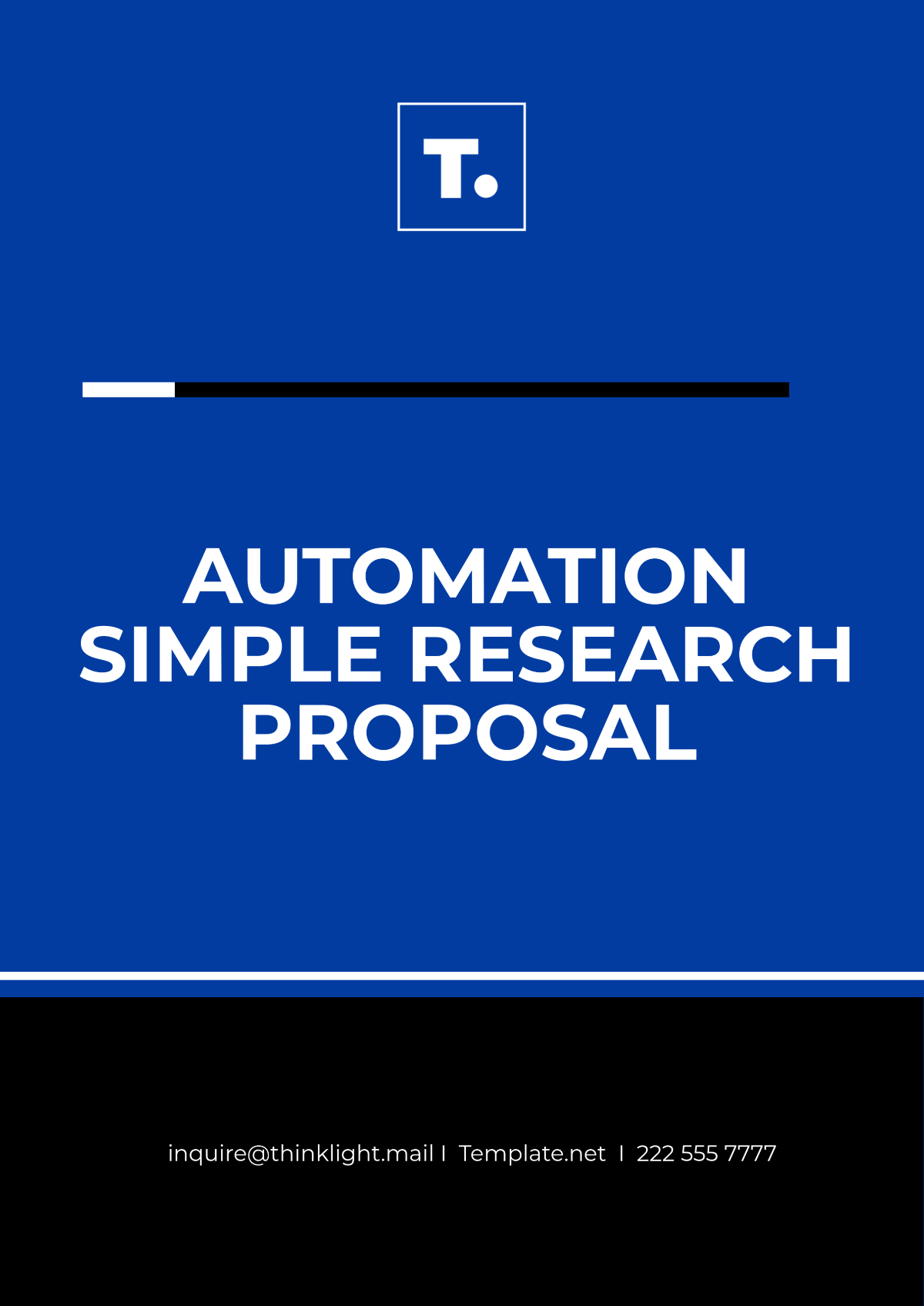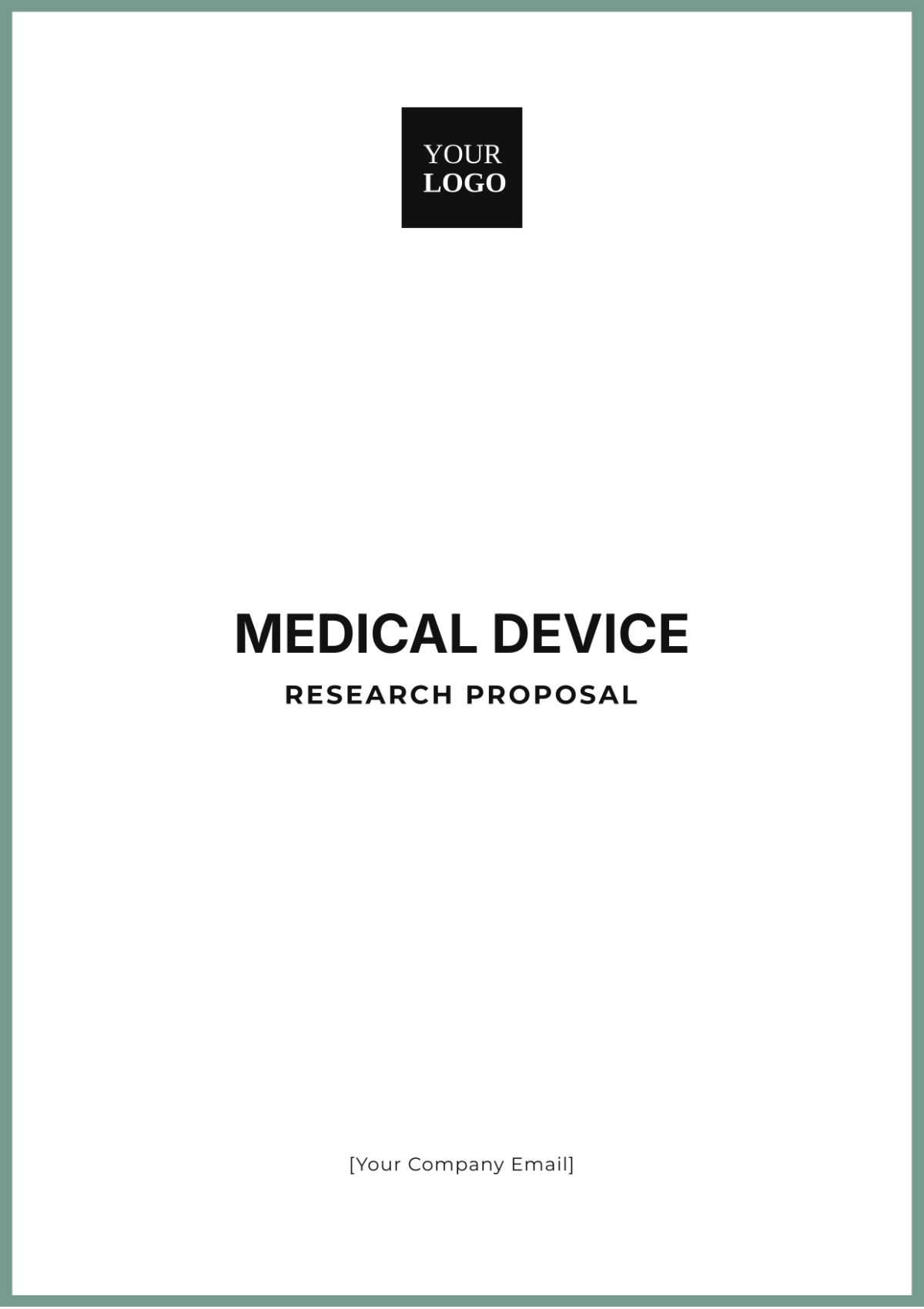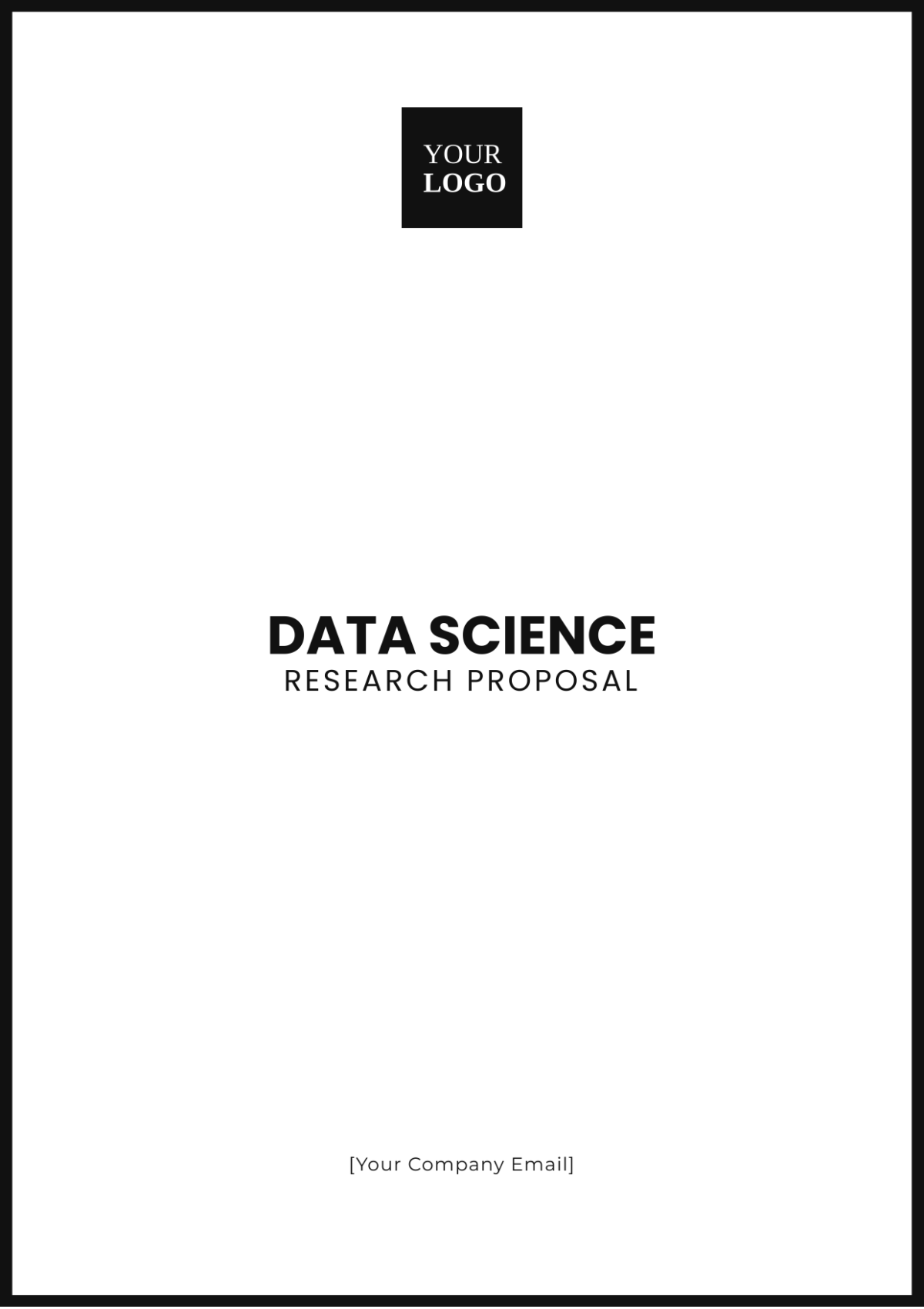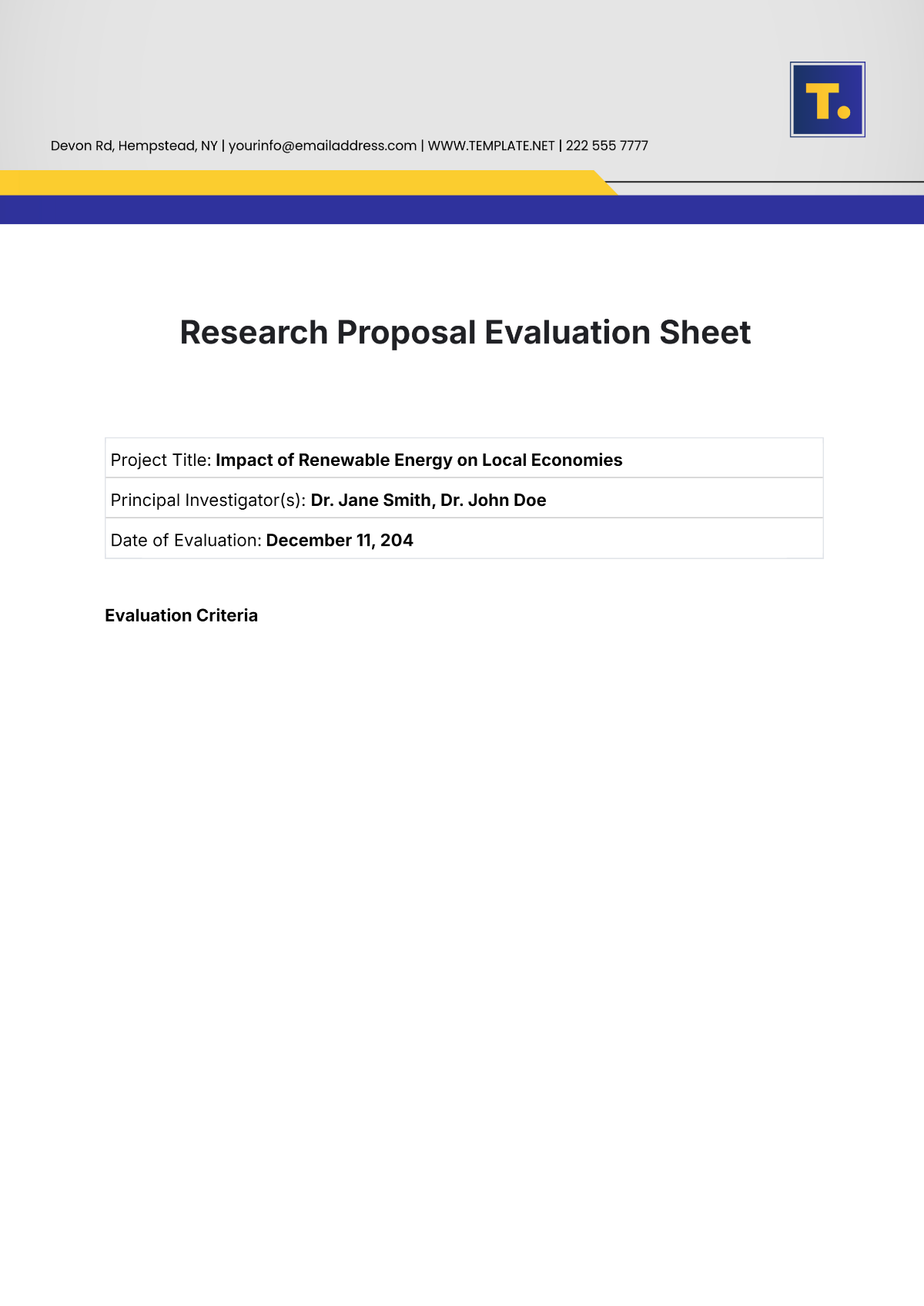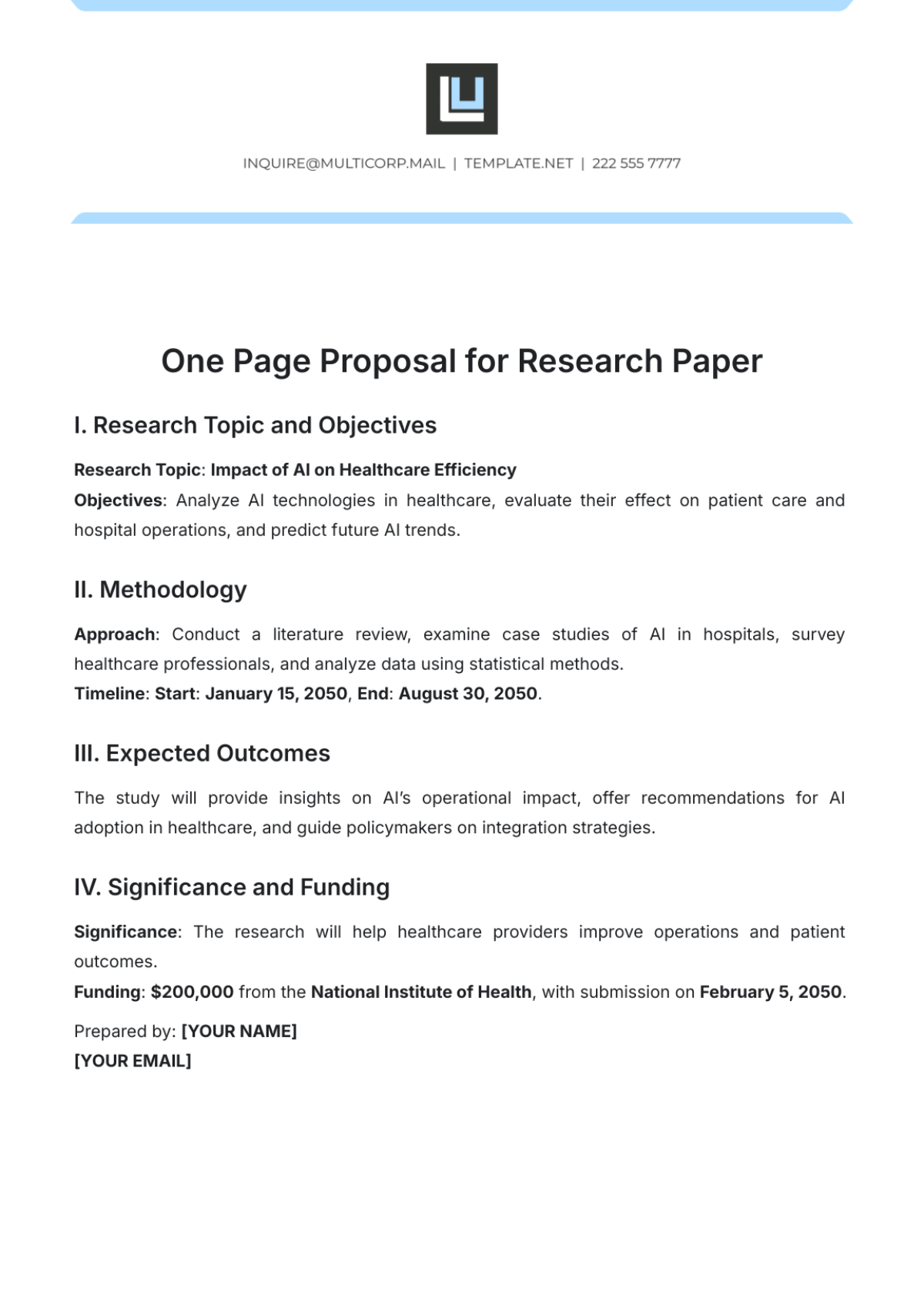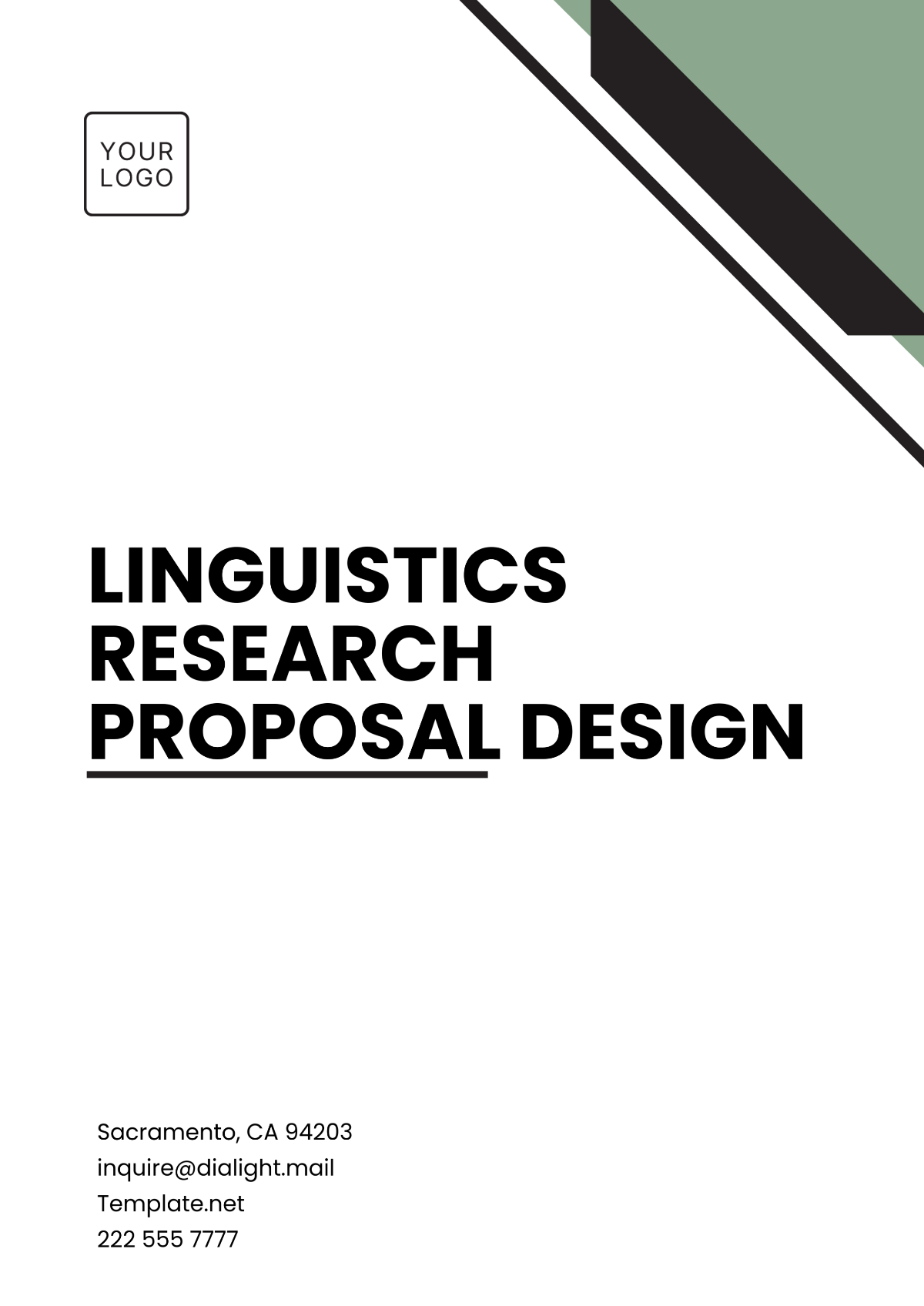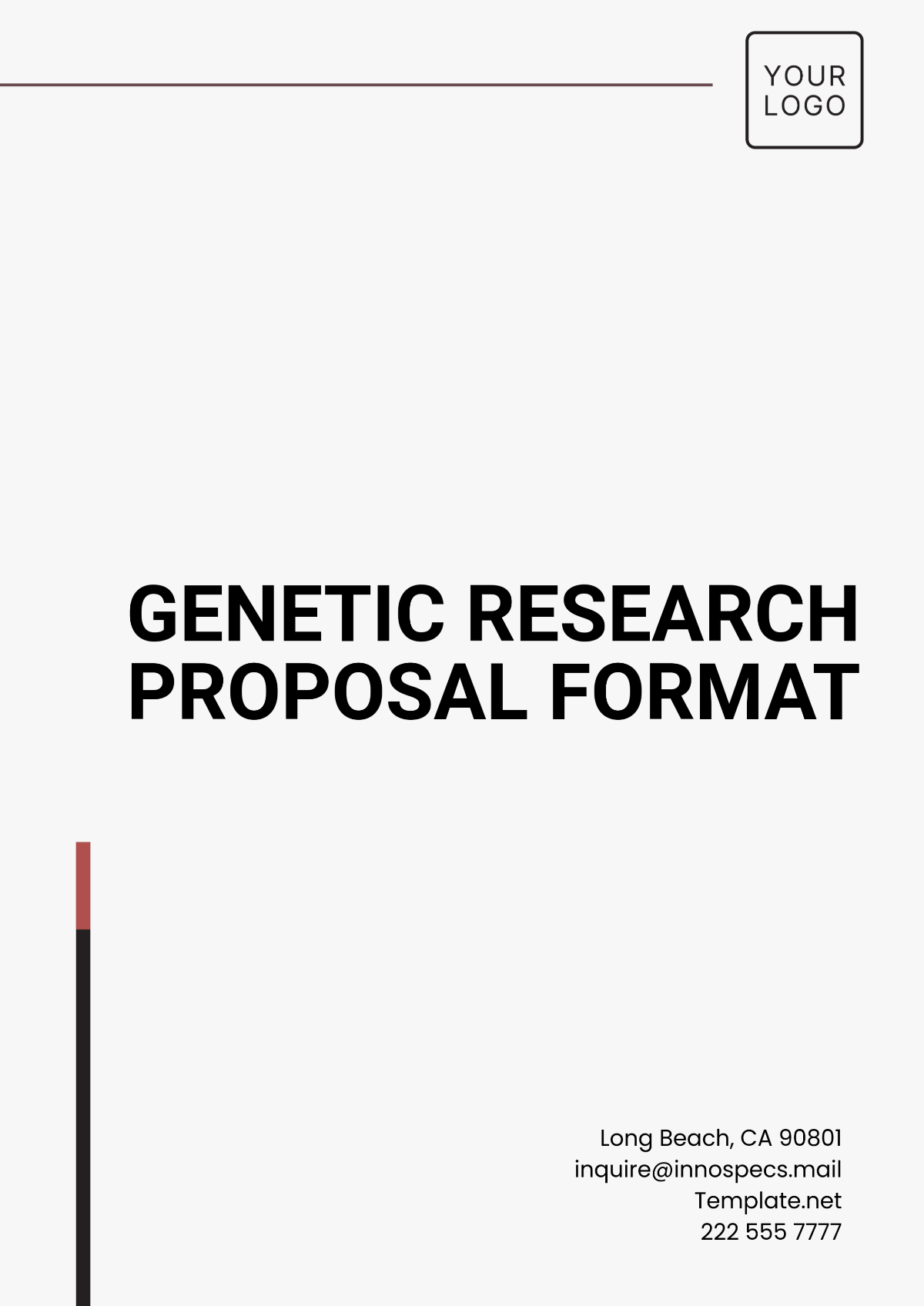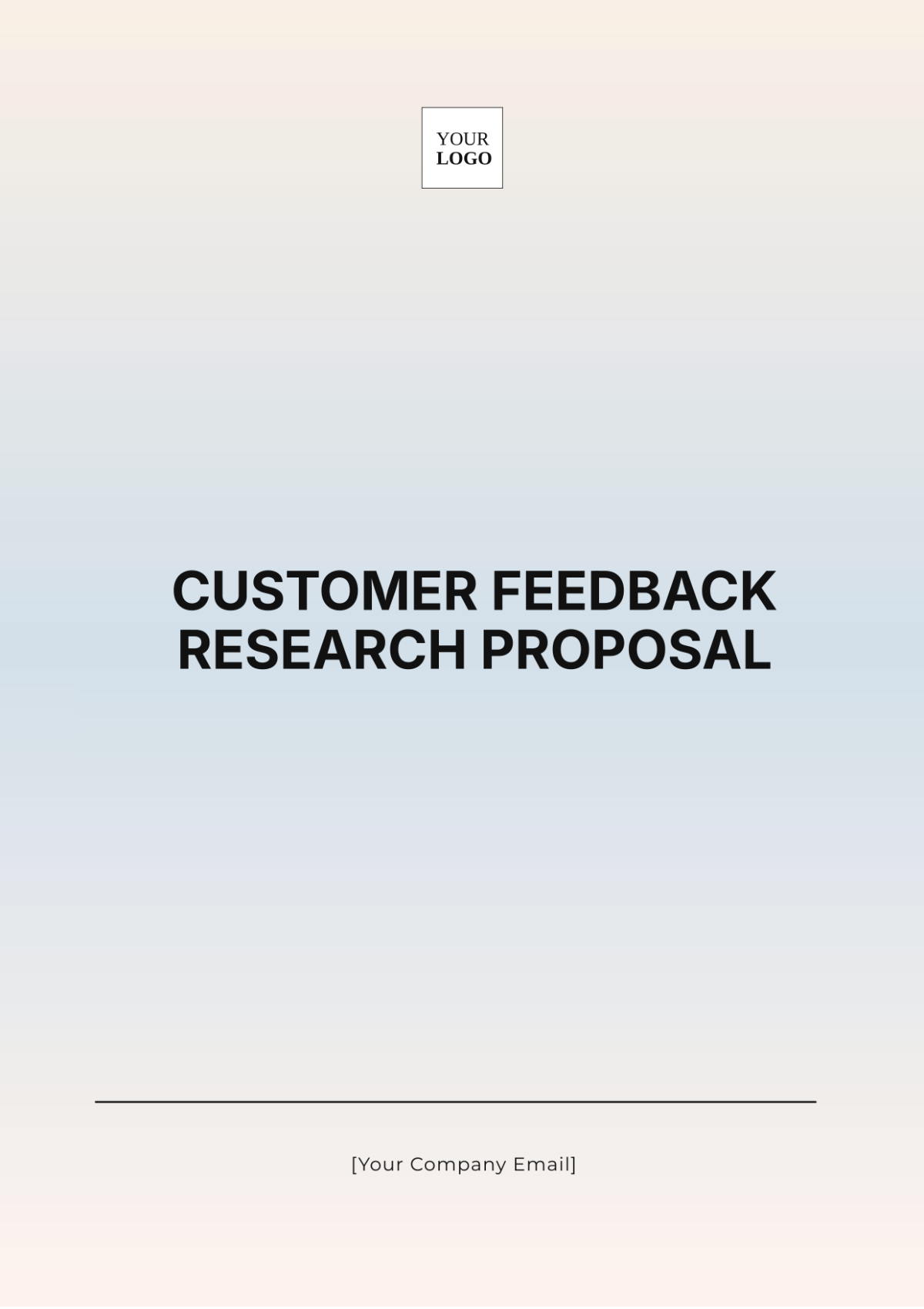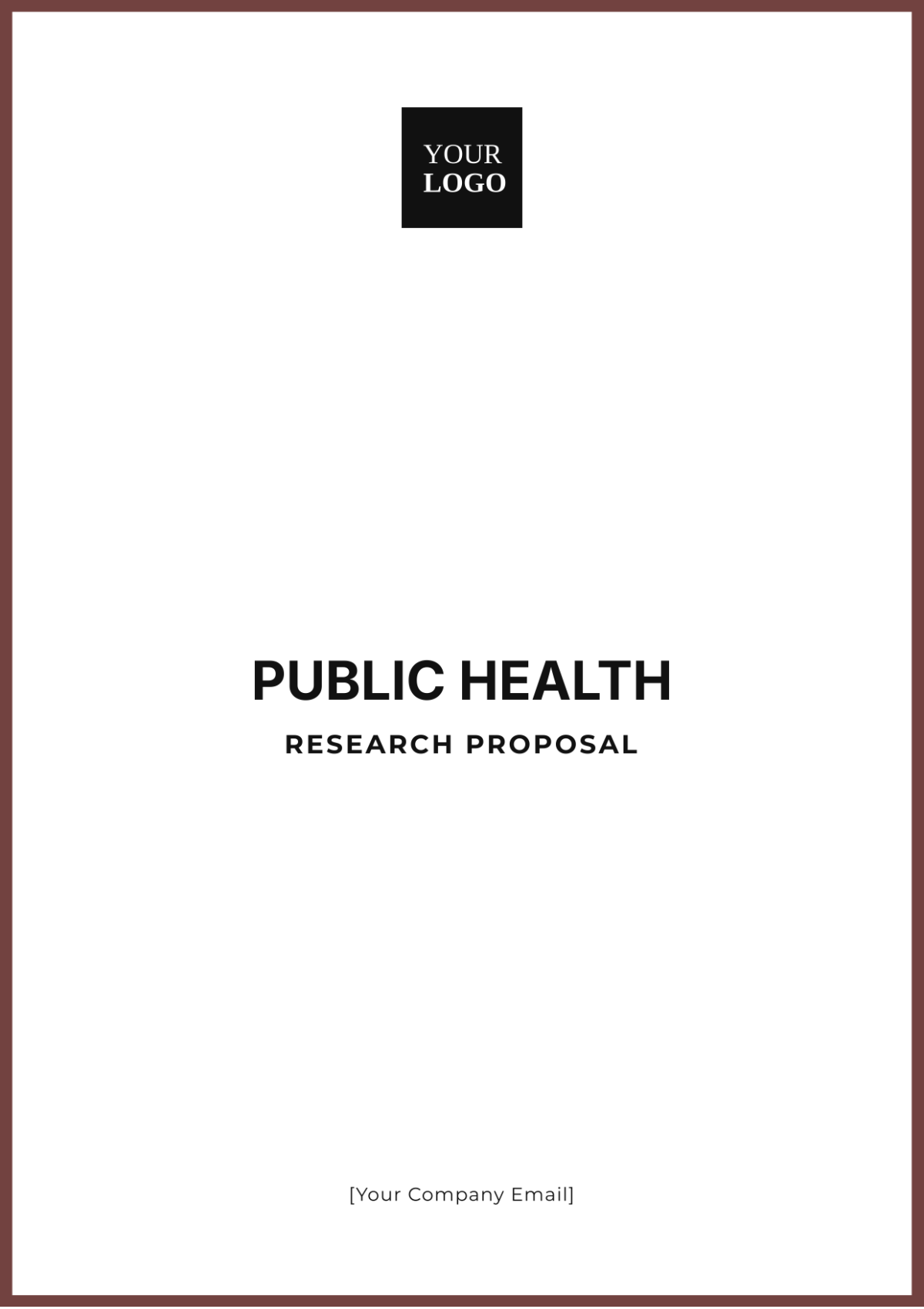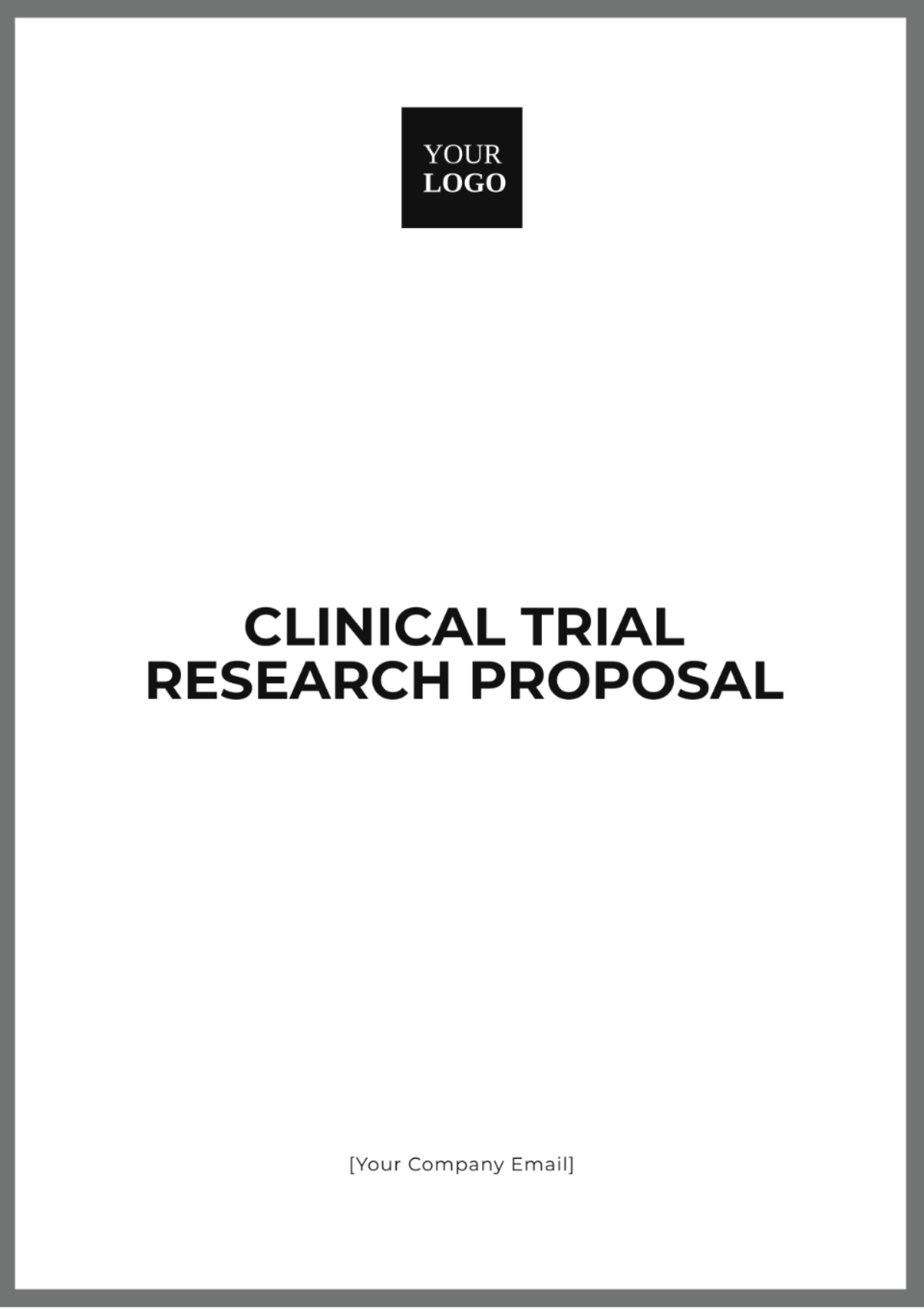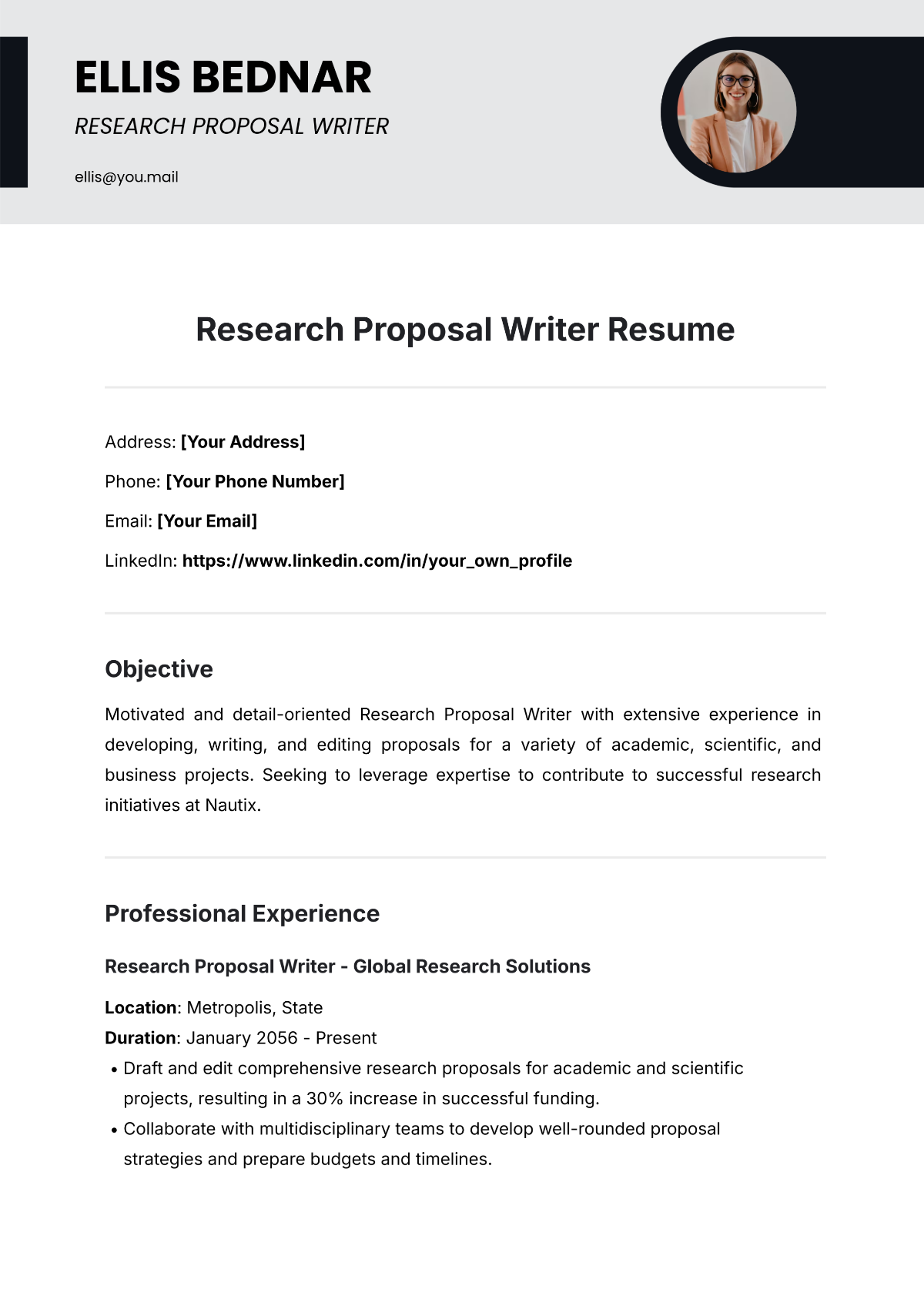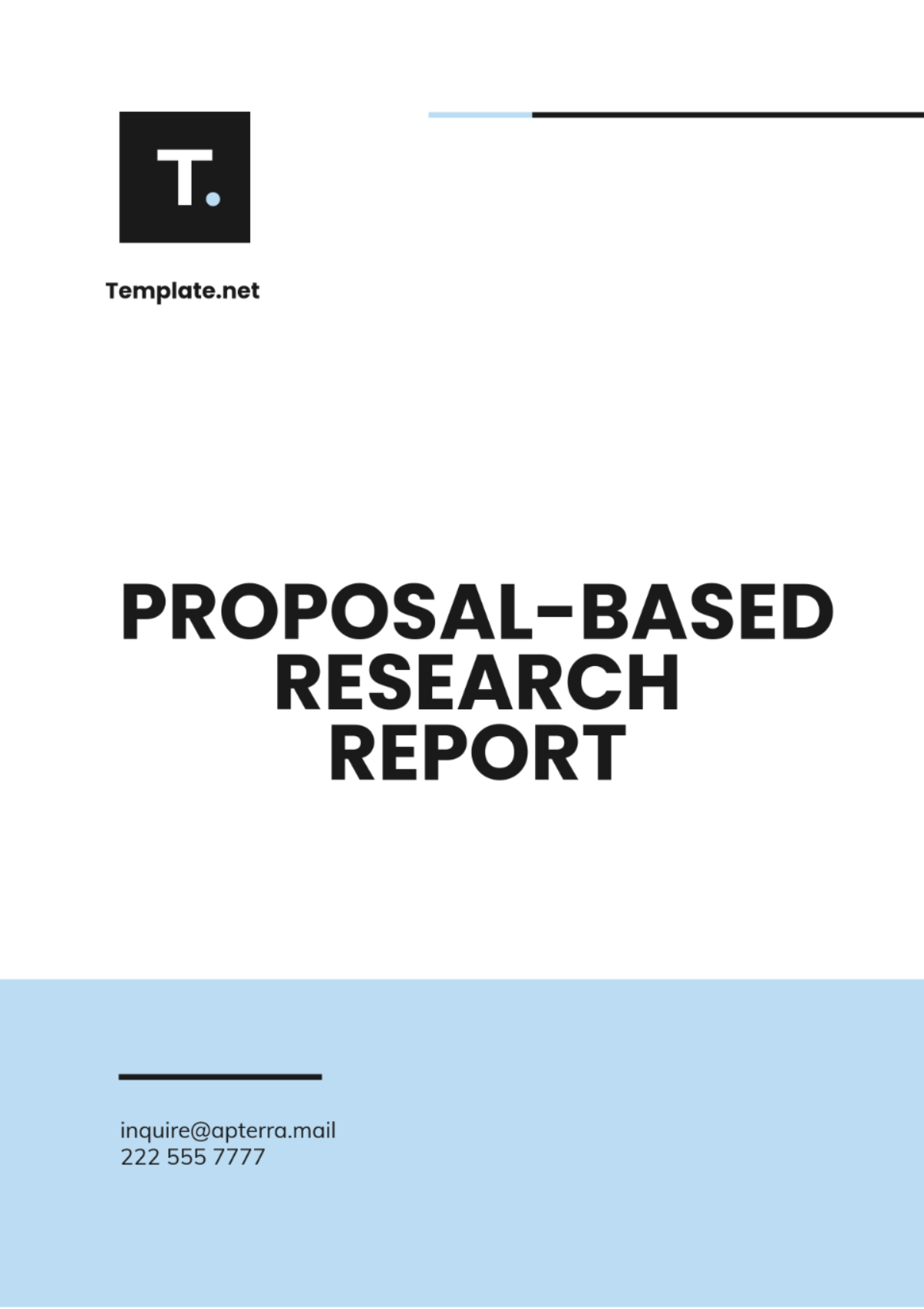Research Proposal for Dissertation
Prepared by: [Your Name]
Date: [Date]
1. Introduction
The research proposal for a dissertation serves as a foundational document outlining the key elements of a proposed research study. This document is essential for defining the scope, objectives, methodology, and significance of the research. It provides a comprehensive overview of the research problem, theoretical framework, and proposed methods for data collection and analysis. This proposal aims to present a structured plan to guide the research process and establish a basis for evaluating the research's feasibility and potential impact.
2. Background and Rationale
2.1 Context
The proposed research focuses on the impact of artificial intelligence (AI) on healthcare delivery systems. As AI technologies advance, their application in healthcare has the potential to revolutionize diagnostics, treatment planning, and patient care. This research will explore how AI can improve healthcare outcomes, streamline processes, and address current challenges in the field.
Overview of the Topic: AI in healthcare has been a growing area of interest, with applications ranging from diagnostic tools to predictive analytics.
Key Literature Review: Previous studies have highlighted AI's potential benefits, such as early disease detection and personalized medicine, but gaps remain in understanding its practical implementation and impact on healthcare efficiency.
Identification of Gaps: While there is substantial research on AI's technical capabilities, there is less focus on its real-world application and integration into existing healthcare systems.
2.2 Justification
This research is necessary to address the following issues:
Significance of the Research Problem: Understanding AI's practical benefits and limitations in healthcare can guide future technology development and policy-making.
Potential Benefits: The findings could lead to improved patient outcomes, reduced healthcare costs, and enhanced system efficiencies.
Relevance to Current Trends: With the increasing adoption of AI technologies, this research is timely and relevant to the ongoing transformation of healthcare systems.
3. Research Objectives
3.1 Primary Objective
Objective 1: To investigate the impact of AI technologies on the efficiency and effectiveness of healthcare delivery systems.
3.2 Secondary Objectives
Objective 2: To analyze the relationship between AI implementation and patient outcomes in various healthcare settings.
Objective 3: To assess the challenges and barriers faced by healthcare providers in integrating AI technologies into their practices.
4. Research Questions
What is the effect of AI technologies on the efficiency of healthcare delivery systems?
How does the implementation of AI impact patient outcomes in different healthcare environments?
What are the primary challenges and barriers to adopting AI technologies in healthcare?
5. Theoretical Framework
5.1 Key Theories
Theory of Technological Acceptance Model (TAM): This theory will be used to understand how healthcare professionals accept and use AI technologies.
Theory of Change: This theory will help in examining how AI implementation leads to changes in healthcare practices and patient outcomes.
5.2 Application of Theories
Utilizing TAM: The research will use TAM to evaluate healthcare professionals' attitudes toward AI and their likelihood of adoption.
Integrating Theory of Change: The research will apply this theory to assess how AI technologies drive changes in healthcare delivery processes and patient care.
6. Research Design and Methodology
6.1 Research Design
Type of Research: Mixed methods, combining qualitative and quantitative approaches.
Approach: Observational and case study analysis of AI implementation in selected healthcare settings.
6.2 Data Collection Methods
Surveys: Administer surveys to healthcare professionals to gauge their experiences and perceptions of AI technologies. Sample size: 200 respondents.
Interviews: Conduct semi-structured interviews with key stakeholders, including healthcare administrators and AI developers.
Experiments: Implement AI tools in selected healthcare facilities and measure their impact on operational efficiency and patient outcomes.
6.3 Data Analysis
Statistical Techniques: Use statistical software to analyze survey and experimental data for trends and correlations.
Thematic Analysis: Analyze qualitative interview data to identify recurring themes and insights related to AI adoption and integration.
6.4 Ethical Considerations
Informed Consent: Obtain informed consent from all participants involved in the research.
Confidentiality: Ensure that all data collected is kept confidential and anonymized.
Risk Management: Address potential risks by implementing protocols for data protection and participant safety.
7. Timeline
Provide a detailed timeline for the research, including key milestones. Use a table format for clarity:
Milestone | Description | Date |
|---|---|---|
Literature Review | Complete review of relevant literature | January 2050 |
Research Design | Finalize research design and methodology | March 2050 |
Data Collection | Conduct data collection activities | June 2050 |
Data Analysis | Analyze collected data | September 2050 |
Draft Dissertation | Prepare and submit the first draft | December 2050 |
Final Submission | Submit final dissertation | March 2051 |
8. Expected Outcomes
Discuss the anticipated results and their potential impact, such as:
Contribution to Existing Knowledge: Provide insights into how AI technologies affect healthcare delivery and patient outcomes.
Practical Applications: Recommendations for integrating AI technologies into healthcare systems to improve efficiency and patient care.
Future Research: Identify areas for further research on AI applications in healthcare and potential improvements.
9. Conclusion
The research proposal outlines a comprehensive plan to investigate the impact of AI technologies on healthcare delivery systems. By addressing key research questions and applying relevant theories, this study aims to contribute valuable insights to the field. The proposed timeline ensures a structured approach to achieving the research objectives, while the ethical considerations address potential concerns. The expected outcomes promise significant benefits for both the academic community and healthcare practice.
10. References
Provide a list of references cited in the proposal, formatted according to the required citation style. Include:
Books: Smith, J. (2050). Artificial Intelligence in Healthcare. Academic Press.
Journal Articles: Johnson, L., & Lee, M. (2052). "The Impact of AI on Patient Outcomes." Journal of Healthcare Technology, 15(2), 123-145.
Reports: World Health Organization. (2050). Global Trends in Healthcare AI. WHO Publications.
Websites: Health tech Innovations. (2051). "AI in Modern Healthcare."
